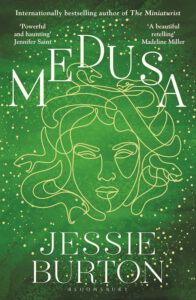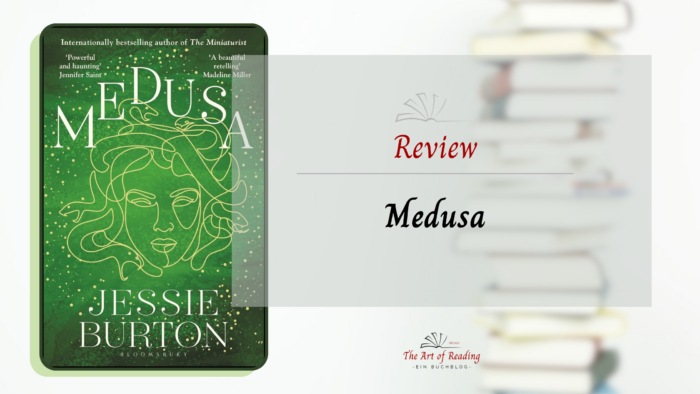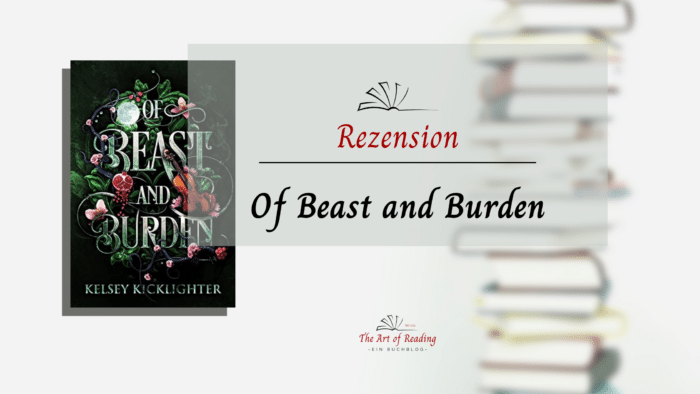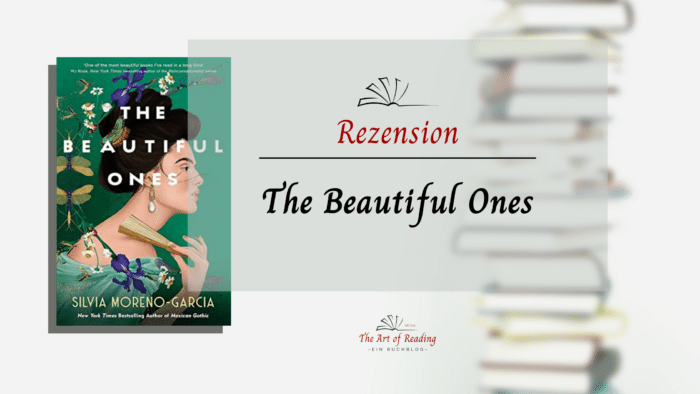Reclaiming Medusa — A Powerful Retelling That Shatters Ancient Myths
Jessie Burton‘s Medusa is a gorgeous and moving reinterpretation of one of mythology’s most misunderstood character. From the opening page, Burton provides a new perspective, transforming Medusa from a mythical monster into a genuinely human and complicated heroine, whose narrative has been overshadowed by centuries of dread and misinterpretation. Here, Medusa is given her own voice—one that is loud, fierce, and unapologetically her own, making for a gripping read that resonates deeply with anyone who has ever felt misunderstood or sidelined.
 Medusa by Jessie Burton
Medusa by Jessie BurtonPublished: 01/27/2023 by Bloomsbury Publishing
Format: Paperback, 171 pages
Genre: Feminism, Greek, Historical Fiction, Mythology, Retelling, Romance
ISBN-13: 9781526662408
Language: English
Audience: New Adult
Shelve: Read 2024
Link to Goodreads
Rating:
If I told you that I'd killed a man with a glance, would you wait to hear the rest? The why, the how, what happened next?
Monster. Man-hater. Murderess. Forget everything you've been told about Medusa.
Internationally bestselling author Jessie Burton flips the script in this astonishing retelling of Greek myth, illuminating the woman behind the legend at last.Exiled to a far-flung island after being abused by powerful Gods, Medusa has little company other than the snakes that adorn her head instead of hair. Haunted by the memories of a life before everything was stolen from her, she has no choice but to make peace with her present: Medusa the Monster. But when the charmed and beautiful Perseus arrives on the island, her lonely existence is blown apart, unleashing desire, love... and betrayal.
Buy the Book at: Amazon*

Medusa ♦ Jessie Burton
A Review
Opinion
Medusa‘s image as a villain is largely due to the writings of the Roman poet Ovid, who depicted her in Metamorphoses* as a creature condemned by the gods. Ovid‘s portrayal of Medusa has had a significant impact on public perception, with a focus on her metamorphosis into a Gorgon and subsequent defeat by Perseus. This story has influenced her image for generations, depicting her as a terrifying, vindictive creature. However, in Medusa, Burton expertly flips the script, allowing Medusa to reclaim her story and emerge from the shadow of Ovid‘s version. Burton‘s Medusa is not the frightening villain of Ovid‘s myth, but rather a young woman with a difficult past and a quiet strength who longs to be recognized for who she truly is.
Chapter One, 13 pp
I wanted stories, company, closeness. But I was in an agony of self-doubt.
Burton‘s Medusa begins as a quiet, withdrawn young woman who is confined not only by her physical isolation in exile, but also by a strong sense of uncertainty and shame over her history. This Medusa is haunted not only by memories of pain and the brutal modifications imposed on her, but also by a profound sense of powerlessness. Throughout the novel, she experiences a transformation that is both remarkable and powerful. Not only do her circumstances alter, but so does her sense of self. She transforms from a woman who withdrew from the world to one who recognizes her own strength and embraces her identity as a survivor rather than a victim.
● 10 books based on myths, sagas, or legends
The most intriguing aspect of Burton‘s rendition is how she alters the narrative focus, allowing us to comprehend Medusa beyond the labels that have been assigned to her: “Monster. Man-hater. Murderess.” This is not the story of a villain, but rather of a young woman who has been wronged and is striving to find her way forward in a world that has abandoned her. Burton‘s rich, lyrical style helps Medusa to reclaim her narrative, breaking free from the bonds of myth and legend to become a fully realized figure.
The entrance of Perseus on Medusa‘s lonely island adds layers of complexity to the story. Burton expertly conveys the conflict between Medusa‘s need for connection and her dread of betrayal—a worry that proves to be justified. Their exchanges are explosive, tinged with both love and danger, and Burton expertly uses their relationship to explore issues of power, vulnerability, and the repercussions of being visible or invisible. The narrative strikes a careful balance, never reducing Perseus to a mere antagonist, instead employing him as a catalyst for Medusa‘s final self-realization.
Chapter Six, 60 pp
I sighed. ‘Perseus, when you’re a girl, people think your beauty is their possession. As if it’s there for their pleasure, as if they’ve got something invested in it. They think you owe them for their admiration. Look at your mother and how Zeus behaved to her, breaking through her window.[…]’
What truly distinguishes Medusa is Burton‘s ability to construct a story of survival and empowerment. Medusa‘s story is one of reclaiming choice, of realizing that her power comes from her ability to determine her own worth, not from the terrible change she has undergone. By the end, she understands that she is not to fault for what has happened to her—an understanding that feels like a victory not only for her character, but for every reader who has ever suffered with self-doubt and shame.
Conclusion
Jessie Burton’s Medusa is a remarkable retelling that breathes new life into a figure who has been silenced for too long. It calls into question the ancient narratives that reduced her to a mere monster, allowing Medusa to recover her proper place as a strong and profoundly complex woman. It’s a narrative about regaining one’s voice, finding strength in vulnerability, and the power of seeing oneself clearly even when the rest of the world doesn’t. If you enjoy books about Greek or other ancient mythologies, this book is a must-read. It is a story that will stay with you long after you have turned the last page.
Chapter Thirteen, 166 pp
I was proud of who I was, and I had as much right to be alive as Perseus did. They’d all tested me; they’d all tried to see if I would break. But I was tired of men and gods and goddesses dictating the ebb and flow of my happiness, my state of mind.
I’d trusted Perseus. I had thought he was my one true hope. But it turned out my one true hope was me.

diese Rezension wurde auch hier veröffentlicht:
Alle von mir genutzten Bilder zu Buchcovern sind Eigentum der jeweiligen Verlage und/oder AutorInnen bzw. anderer Rechteinhaber.
All book cover images I use are the property of the respective publishers and/or authors or other rights holders.
Zitate sind das geistige Eigentum der AutorInnen bzw. Verlage/Herausgeber.
Quotations are the intellectual property of the authors or publishers/editors.




